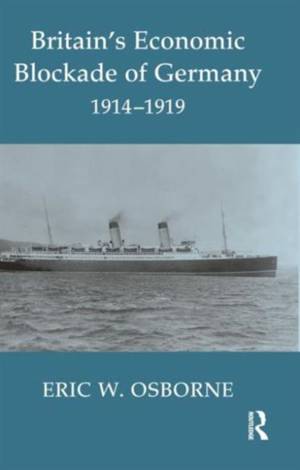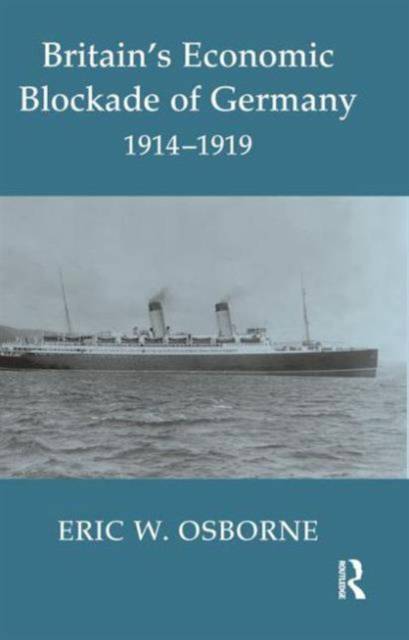
- Retrait gratuit dans votre magasin Club
- 7.000.000 titres dans notre catalogue
- Payer en toute sécurité
- Toujours un magasin près de chez vous
- Retrait gratuit dans votre magasin Club
- 7.000.0000 titres dans notre catalogue
- Payer en toute sécurité
- Toujours un magasin près de chez vous
Description
Great Britain's economic blockade of Germany in World War I was one of the key elements to the victory of the Entente. Though Britain had been the leading exponent of blockades for two centuries, the World War I blockade was not effective at the outbreak of hostilities. Pre-war changes had led to the Admiralty supplanting the Royal Navy's leadership role in favour of direction from the civilian branch of government on the basis of international law. The struggle between the primacy of international law and military expediency lasted for nearly two years, as the British tried to reconcile their pre-war stance as champion of neutral rights with measures necessary for a successful blockade. Not until 1916 did the operation have the potential to be a decisive factor in the defeat of Germany, when pressure from France, the Royal Navy, Parliament, British popular opinion, and the Admiralty forced the British government to abandon its defence of neutral rights over the interests of the state. The arrival of the United States as an ally in April 1917 initiated the final evolution of the blockade. The Entente and the United States tightened the blockade with crushing effect on Germany, and by November 1918, it was evidently one of the chief factors behind the victory. This knowledge reinforced the decision to retain the blockade in the months following the armistice in order to force favourable terms from Germany. In both the war and in the peace, the economic blockade performed a critical role in World War I.
Spécifications
Parties prenantes
- Auteur(s) :
- Editeur:
Contenu
- Nombre de pages :
- 232
- Langue:
- Anglais
- Collection :
- Tome:
- n° 24
Caractéristiques
- EAN:
- 9780415646178
- Date de parution :
- 31-10-13
- Format:
- Livre broché
- Format numérique:
- Trade paperback (VS)
- Dimensions :
- 155 mm x 231 mm
- Poids :
- 340 g

Les avis
Nous publions uniquement les avis qui respectent les conditions requises. Consultez nos conditions pour les avis.






